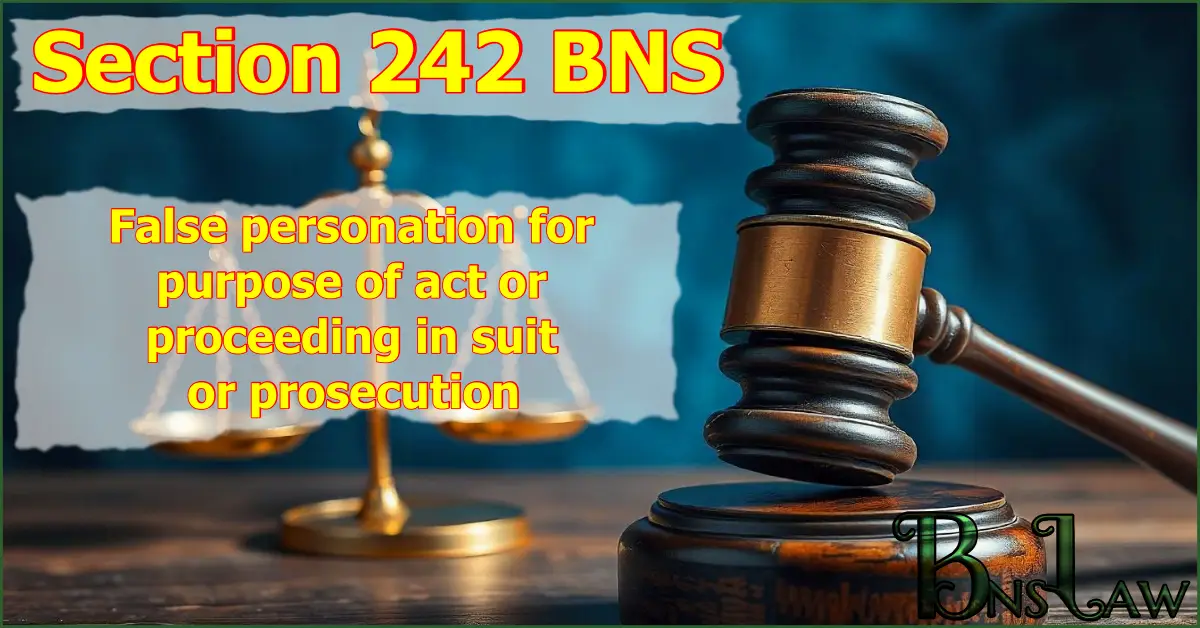Section 242 BNS | BNS 242
Whoever falsely personates another, and in such assumed character makes any admission or statement, or confesses judgment, or causes any process to be issued or becomes bail or security, or does any other act in any suit or criminal prosecution, shall be punished with imprisonment of either description for a term which may extend to three years, or with fine, or with both.
READ OTHER SECTIONS OF CHAPTER XIV — OF FALSE EVIDENCE AND OFFENCES AGAINST PUBLIC JUSTICE
FAQs of BNS Section 242
-
242 BNS punishment and fine
Punishment and fine under Section 242 of the BNS: Imprisonment for 3 years, or fine, or both.
-
242 BNS cognizable or not
The offence under Section 242 of the BNS is non-cognizable.
-
242 BNS bailable or not
The offence under Section 242 of the BNS is bailable.
-
242 BNS trial court
Offence specified in Section 242 of the BNS is triable by the Magistrate of the first class.
Important Points
- Cognizable Offences: These are offences where a police officer can arrest a person without a warrant.
- Non-Cognizable Offences: These are offences where a police officer cannot arrest a person without a warrant.
- Bailable Offences: These are offences where the accused can get bail from the police station itself. All bailable offences are listed in the First Schedule of the Bharatiya Nagarik Suraksha Sanhita (BNSS).
- Non-Bailable Offences: Offences in which bail is not granted directly from the police station but after hearing the case in the court, the judge decides when bail will be granted. All non-bailable offences are listed in the first schedule of the Bharatiya Nagarik Suraksha Sanhita (BNSS).
- In the above FAQ, “trial court” means the court that has jurisdiction to try the offence.
- In the above FAQ, the expression “Magistrate of the first class” and “Any Magistrate” does not include Executive Magistrates.
Read other Sections of the BNS
Reference Link: New Criminal Laws (BNS), Ministry of Home Affairs







